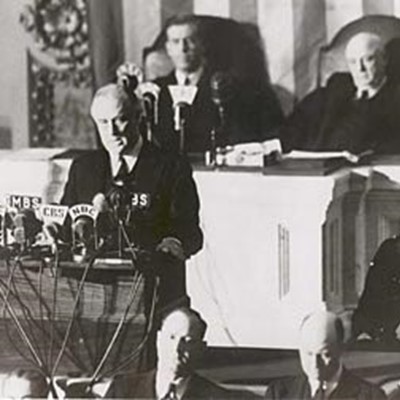
In this series, we look at simple changes you can start using right away to improve your public speaking. So while great speaking is a lifetime pursuit, your next step can start with your next presentation.
Coming across as confident is high on most speakers' wish lists. You can help yourself toward that goal by making these three changes to sound more certain of yourself and your message whenever you speak.
1. Slow down.
Whether you tend to speak quickly because of nerves or it's just your regular rate of speech, slowing down when presenting or while reporting in meetings can help you sound more confident about what you're saying.
First, slow the rate at which you deliver each sentence. It helps to remember: Your audience is hearing this information for the first time and when you speak more deliberately, you help them keep up.
Then, don't shy away from pausing. Pause at the end of a sentence. Pause even longer when you shift to a new point or want to let information sink in. One mark of a confident speaker is that they are comfortable with silence.
Of course, you don't want to plod through an entire presentation at a sluggish pace. Variation is important, too. But paying attention to pace and avoiding the rush are ways you can show confidence, especially in the opening minutes of a presentation.
2. Reduce your use of tentative language.
If you are a speaker who frequently leads into statements with "I think" or "Maybe we should consider," we'd like you to consider eliminating those filler phrases. Used repeatedly, these words undermine your strength.
Speakers get in the habit of using tentative phrases when they don't want to come off as arrogant or closed to other ideas. The feeling behind the words is commendable, but the result can be a person who seems less-than-sure of the proposal they're making.
Yes, there are times when you need to suggest. ("General, perhaps we should consider…" is one of those, for example). Check in with yourself, though. If you are saying "I think" by default, reducing your reliance on it will strengthen your presence and your message.
3. Project your voice.
We've seen experts diminish their credibility by presenting in a too-soft voice. We've watched speakers who have strong beliefs come off as wishy-washy, because they seem to be whispering to themselves.
Your voice doesn't have to boom for projection to be effective. (In fact, no one wants to listen to a booming voice for an entire presentation.) You do need:
- enough volume so people can hear you easily, and
- projection that makes it clear you're not withholding your voice and talking to yourself.
If you are a soft-spoken presenter—or if you've been told repeatedly that you need to speak up—take this tip to heart.
Ask someone you trust to sit in the back of a room while you practice elevating your volume. Get them to help you find the right amount of projection that's effective for the audience and comfortable for you.
One small step toward a stronger presence
Confidence is not a one-size-fits-all proposition, we're happy to report. Each of us will have our own best ways for presenting, and that makes life—and messages—more interesting.
The best thing we can do for ourselves is to try techniques and notice how they work. That said, nearly every speaker we encounter is happy with the effects when they try any of these three simple ways to project more confidence.
LEARN MORE
For tips to bring more confidence to your seated presentations, check out this advice.
When public speaking nerves make it hard to sound confident, consider these tips.
Find our ideas on how changing your self-talk can create a more confident mindset.






